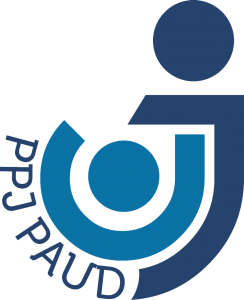The Relationship Between Mathematical Literacy and Early Childhood's Habits of Mind
DOI:
https://doi.org/10.37680/absorbent_mind.v4i2.6511Keywords:
Early Childhood, Habits of Mind, Mathematical LiteracyAbstract
Mathematical literacy supports the importance of children developing a strong understanding of basic mathematical concepts and engaging in mathematical explorations that are relevant to their lives. Mathematical literacy refers to a child's ability to understand and apply basic mathematical concepts, while habits of mind include deep thinking habits such as critical, creative, and reflective thinking. This study aims to explore the relationship between mathematical literacy and habits of mind in early childhood. This study used a quantitative approach with a correlational design, involving 28 preschool children selected through stratified cluster sampling. Data were collected using a mathematical literacy test, a habits of mind questionnaire, and interviews with parents and teachers. The results showed that there was a significant positive relationship between mathematical literacy and habits of mind (r = 0.730, p < 0.05). The contribution of habits of mind to mathematical literacy was 53.3%, indicating that good habits of mind play an important role in improving children's mathematical literacy. So it can be concluded that developing habits of mind through well-planned learning can strengthen early childhood mathematical literacy.
References
Alamudin, R., Ratnaningsih, N., & Madawistama, S. T. (2022). Analisis Literasi Matematis Peserta Didik Ditinjau dari Self-Efficacy dan Habits of Mind. Prisma, 11(2), 487. https://doi.org/10.35194/jp.v11i2.2463
Arikunto, S. (2019). Prosedur Penelitian. Rineka cipta.
Az-Zahra, S. A., Zakiah, N. E., & Solihah, S.-. (2022). Kemampuan Literasi Matematis Siswa Smp Ditinjau Dari Habits of Mind Yang Berasal Dari Keluarga Pengrajin Handicraft. J-KIP (Jurnal Keguruan Dan Ilmu Pendidikan), 3(3), 752. https://doi.org/10.25157/j-kip.v3i3.8794
Forsman, S. (2016). Habits of Mind. Early Math Counts. https://earlymathcounts.org/habits-of-mind/
Jerau, E. E., Wardono, W., & Karomah Dwidayati, N. (2021). Mathematical Literacy Ability Viewed by Students’ Mathematical Habits of Mind Using Quick on the Draw Model With SPUR Approach. Ujmer, 10(1), 40–49. http://journal.unnes.ac.id/sju/index.php/ujmer
McClure, E. (2017). More Than a Foundation: Young Children Are Capable STEM Learners. Naeyc. https://www.naeyc.org/resources/pubs/yc/nov2017/STEM-learners
Nuurjannah, P. E. I., Hendriana, H., & Fitrianna, A. Y. (2018). Faktor Mathematical Habits of Mind dan Kemampuan Literasi Matematis Siswa SMP di Kabupaten Bandung Barat. Jurnal Mercumatika : Jurnal Penelitian Matematika Dan Pendidikan Matematika, 2(2), 51. https://doi.org/10.26486/jm.v2i2.423
Purwasih, R., Sari, N. R., & Agustina, S. (2018). Analisis Kemampuan Literasi Matematik Dan Mathematical Habits Of Mind Siswa Smp Pada Materi Bangun Ruang Sisi Datar. 5(1).
Rastuti, M., & Setyaningrum, W. (2024). Analisis Kemampuan Literasi Matematika Dan Habits of Mind. AKSIOMA: Jurnal Program Studi Pendidikan Matematika, 13(2), 550. https://doi.org/10.24127/ajpm.v13i2.8680
Siti Rahmatina, Nova Fahradina, Afrida Hanum, & Risy Mawardati. (2022). Pengaruh Habits Of Mind dan Self Concept terhadap Berpikir Kritis Matematis. Jurnal Pendidikan Mipa, 12(4), 1229–1235. https://doi.org/10.37630/jpm.v12i4.777
Sugiyono, P. D. (2019). Metode Penelitian Pendidikan (Kuantitatif, Kualitatif, Kombinasi, R&d dan Penelitian Pendidikan). Metode Penelitian Pendidikan.
Wahyuningsih, W., Matematika, A. A.-S. N., & 2023, undefined. (2023). Kajian Kemampuan Literasi Matematika Ditinjau dari Habits of Mind Melalui Model Problem Based Learning dengan Aktivitas Math Trails Berbantuan MathCityMap. Journal.Unnes.Ac.Id, 6, 256–263. https://journal.unnes.ac.id/sju/index.php/prisma/article/view/66644
Downloads
Published
Issue
Section
License
Absorbent_mind; Journal of Psychology and Child Development allow the author(s) to hold the copyright without restrictions and allow the author(s) to retain publishing rights without restrictions, also the owner of the commercial rights to the article is the author.
License:
- Attribution: You must provide an appropriate name, include a link to the license, and certify that changes have been made. You can do this in an appropriate manner, but do not imply that the licensor supports you or your use.
- Share Alike: If you compose or make derivatives of these materials, you must distribute your contributions under the same license as the original materials.
- No additional restrictions: You may not use legal provisions or technological means of control that legally restrict others from doing the things this license allows.
You are free to:
- Share, copy, and redistribute this material in any form or format.
- Adapt, modify, and create derivatives of this material for any purpose, including commercial purposes.
- The licensor cannot revoke the above terms as long as you comply with the terms of this license.
Creative Commons Attribution-ShareAlike 4.0 International License (CC BY-SA 4.0).





